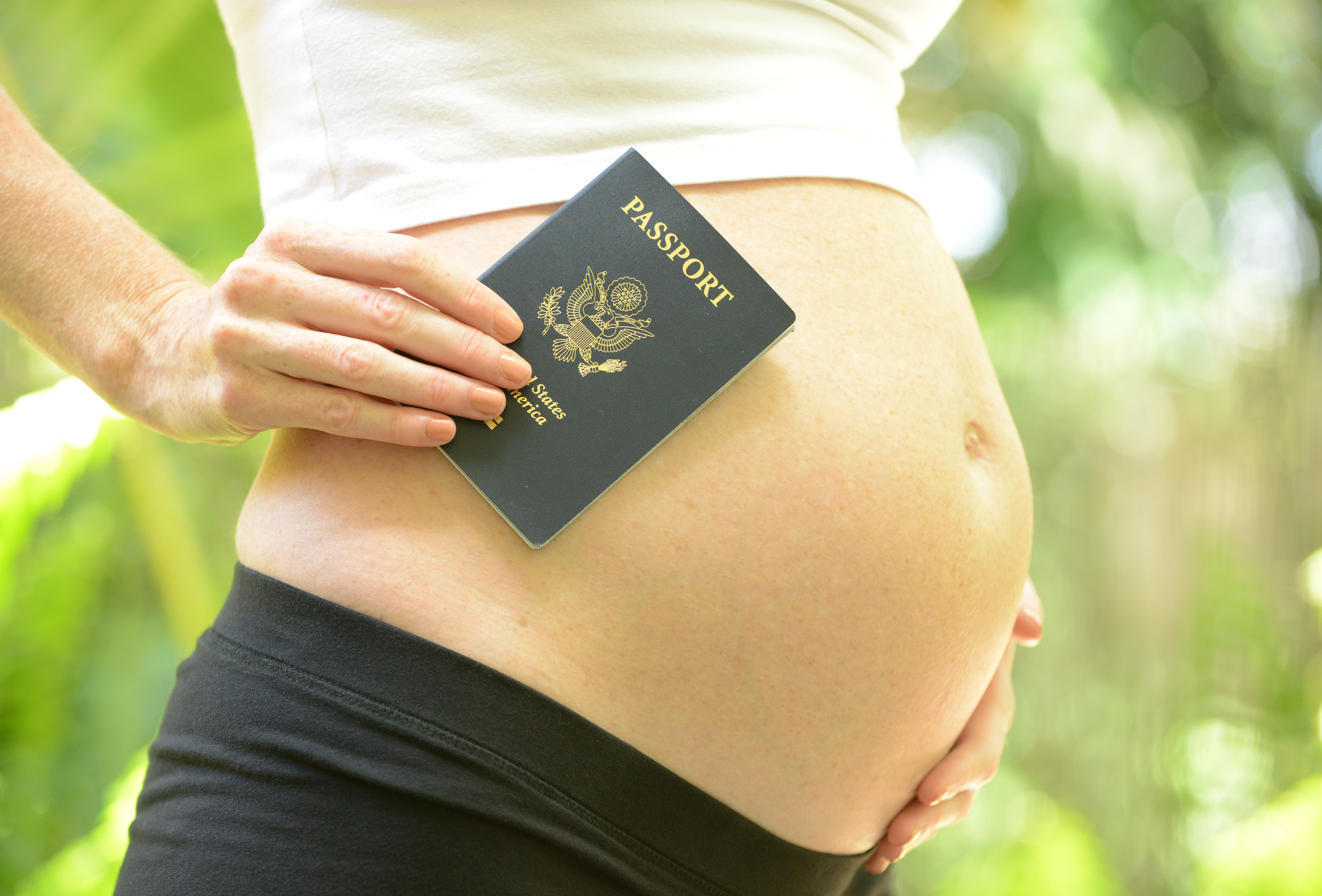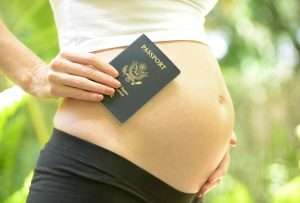Written by Jake Olivier
How to Travel as a Nomad while Pregnant
Traveling across the globe as a nomad can be an incredibly enriching lifestyle; enabling you to discover new cultures and explore the local intricacies of international regions in a manner that most tourists will not have the opportunity to experience. However, many expectant mothers worry that they will not be able to continue traveling as nomads for fear of endangering their unborn child’s development. Fortunately, if you exercise a series of travel safety precautions then you can safeguard your health and the welfare of your baby whilst continuing to travel as a nomad. Therefore, to help you make the most of your first, second and third trimesters, listed below are our helpful suggestions on how to enjoy traveling safely as a nomad while pregnant.
Consult with your healthcare practitioner before departing: Regardless of where in the world you wish to travel as a nomad, it is important that you meet with your family doctor or midwife before departing to ensure that you are fit to travel. During this consultation your particular healthcare practitioner will be able to offer you targeted medical advice regarding the specific vaccinations that you will need to receive before departing and will also be able to inform you about any possible pregnancy complications that you may experience whilst traveling and the ways in which you can prevent them. For instance, there are many anti-malaria medications that cannot be prescribed to expectant mothers, and healthcare professionals also advise pregnant women to refrain from using DEET insect and mosquito repellent products. By consulting with your family doctor or midwife they will be able to provide you with alternative products and medications that are safe to use. Moreover, your healthcare practitioner will also be able to equip you with documentary proof that will verify to airlines and cruise companies that you are fit to travel and that you are certified to carry the prescription medications which you intend to bring with you.
Choose appropriate destinations: Although you can continue to travel to a broad spectrum of international destinations whilst pregnant, it is important that you remain aware of the global zones that are classed as ‘high risk’ areas for expectant mothers. This is due to the fact that, whilst pregnant, you will be more susceptible to particular diseases such as malaria and dengue fever. As such it is strongly recommended that you utilise websites, such as the World Health Organisation (WHO), to ascertain the global regions within which these diseases are prevalent. By doing so, you will be able to plan your nomadic lifestyle around these restrictions and remain confident that you and your baby’s welfare will be safeguarded throughout your travels.
Arrange sufficient healthcare cover: One of the most important safety precautions that expectant mothers can exercise whilst traveling is to arrange sufficient healthcare cover. For these reasons it is recommended that you acquire sufficient travel insurance coverage as well as acquiring an EHIC card so that you will be protected against any unforeseen medical eventuality; from having to cancel your trip to acquiring targeted medical treatment if any complications occur whilst abroad. If you pack proof of your travel insurance, as well as your medical notes, then you will be sufficiently prepared in the event of a medical emergency.
Check airline and cruise company policies before booking: Many airlines and cruise companies will exercise strict regulations regarding pregnant women. As a rule, airlines will not allow women to fly after 36 weeks for a single pregnancy and 32 weeks for twins/triplets. Even once you are past 28 weeks, some carriers will demand a letter from your doctor or midwife confirming your due date and that there have been no complications with your pregnancy. Similarly, many cruise companies will not permit you to travel on their ship if you enter, or will be entering, your 24th week of pregnancy before or during the cruise. Subsequently, it is pivotal that you check the regulations for your particular cruise company or airline before booking a trip, and that you plan your nomadic travel itinerary with these deadlines in mind so you can avoid being stranded in a particular region or having to organise alternative methods of transportation during your third trimester.
Research prohibited foods: One of the most enjoyable aspects of traveling as a nomad is exploring new cultures and discovering their local customs and delicacies. However, in these instances, expectant mothers should exercise caution because there will be many types of food and drink which can be harmful for you and your baby. As CTI advise:
“A pad Thai from a street vendor might be exactly what you’re craving, but can you guarantee its freshness? Be cautious about food you suspect may not have been kept refrigerated, and remember you can’t always drink the water straight from the tap”.
In addition to exercising caution whilst away, you should also research the prohibited foods for pregnant women before you depart. From unpasteurised cheeses to meat which is cooked ‘rare’ and salads that have been washed in local water, you will need to know the particular foodstuffs that you can and cannot eat in specific regions. If in doubt, always ask restaurants and street vendors about the contents of their dishes, travel with packaged snacks that you know are safe to consume, and endeavor to use filtered or bottled water instead of tap water.
Book accommodation in advance: Whilst traveling as a nomad it can be exciting to simply pack a backpack, hit the road and see where the wind will take you! However, if you are expecting a child it is advised that you plan your travels more carefully. If you always ensure that you have booked suitable accommodation before departing for a new region then you can continue to explore vibrant cultures and exotic locations whilst achieving peace of mind that you and your child will always have safe shelter for the night.
Investigate the cultural differences regarding expectant mothers: Across the globe there are a diverse array of customs and traditions regarding pregnant women. Whilst some cultures will be eager to touch your bump for good luck, others will actively discourage you from participating in certain activities whilst you are expecting a child. As such, you should investigate these cultural differences with respect to expectant mothers before departing so that you will be suitably prepared to respond to any of these regional reactions!
Plan your travels depending upon your trimesters: If you intend to continue pursing your nomadic lifestyle whilst pregnant then it will prove beneficial to schedule your travels in accordance with the different developmental stages of your pregnancy. For example, during your first trimester you will most likely suffer from morning sickness and fatigue. Consequently you should opt for shorter journeys during these first 12 weeks of pregnancy. By visiting local regions, booking direct flights, avoiding long cruise trips and scheduling plenty of pit stops on long car journeys during your first trimester, you can continue to traverse the globe whilst safeguarding your health and the development of your baby.
Once you progress into your second trimester your energy levels will increase significantly and you will be better suited to plan more adventurous excursions. There will be a period of approximately 3 to 4 months between your morning sickness subsiding and between when airlines and cruise liners will demand that you present documentary proof that you are ‘fit to travel’. As such, you should take this golden opportunity to visit the areas that you have always wanted to explore before the birth of your child. As long as you choose regions with cooler climates, which are outside ‘high risk’ malaria zones, and which have access to sufficient medical facilities and local amenities, then you will be able to enjoy a nomadic lifestyle throughout your second trimester!
Finally, your third trimester will commence once you have progressed into your 28th week of pregnancy. Although it will still initially be safe to travel during your third trimester, from 32 weeks onwards you will find that many airlines and cruise liners will not allow you to travel with their organisation. Moreover, once you have progressed into your 36th week of pregnancy, all airlines and cruise liners will prohibit you from traveling with them. As Dr. Ashley Roman recommends:
“women who are having any sort of complications associated with their pregnancy or who are considered to be “high risk” shouldn’t travel by air during the later weeks of pregnancy. This includes women with diabetes, sickle cell disease, placental abnormalities, and hypertension, or those at risk for premature labour…If you’re pregnant with multiples, you may want to hold off too…If a patient is having triplets, I recommend that they not fly after 20 to 24 weeks.”
Consequently, it is strongly recommended that you travel closer to home during your third trimester and that you select destinations within which you have a viable support network of family and friends.
Ultimately, by following these travel safety precautions you can continue to enjoy living as a nomad throughout your pregnancy. By doing so, you can continue to discover vibrant cultures and breathtaking regions across the globe which you will one day be able to introduce to your child.
Happy travels!
About the Author
Jake Olivier is a newbie traveler (blog at https://www.jakepolivier.




0 Comments